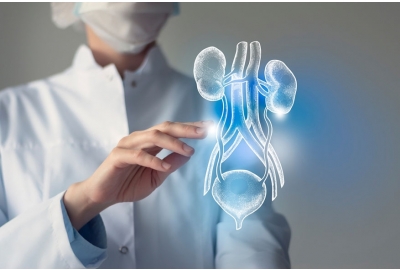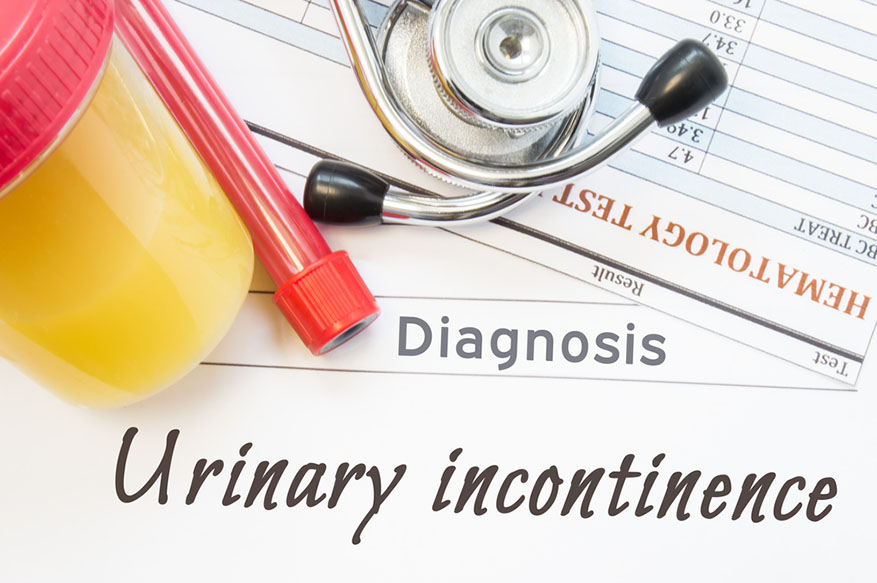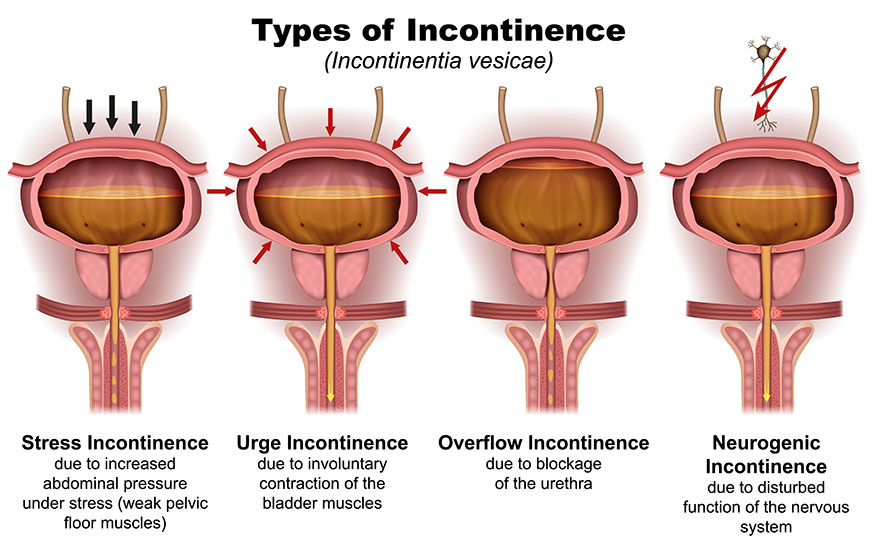
How Long Does Postpartum Urinary Incontinence Last?
Postpartum urinary incontinence, or difficulty controlling your bladder after pregnancy, is more common than you might think. The good news is there are strategies to help manage postpartum urinary incontinence and decrease, if not eliminate, leakage over time.
What Is Postpartum Urinary Incontinence?

Source: mi_viri/Shutterstock.com
Postpartum urinary incontinence describes the involuntary bladder leakage that may occur after childbirth. This condition results from weakening muscles around the pelvis and bladder following childbirth, making it challenging to control urinary flow: You can experience a loss of bladder control when you cough, sneeze, laugh or engage in strenuous activity.
Additionally, in the weeks following delivery, your uterus strengthens. The uterus sits on top of the bladder and compresses it, making it more challenging to control urinary flow. Changes to your hormones during and after pregnancy also impact how your bladder may function.
How Common Is Postpartum Urinary Incontinence?
Urinary incontinence is common, with one out of four women experiencing some level of leakage during her life. The chances of developing incontinence after giving birth may increase if:
- You had bowel or bladder problems pre-pregnancy.
- You experienced bladder problems during pregnancy.
- It is your first baby.
- The baby is larger than average.
- Labor is longer than expected, especially if the second stage of labor is long.
- Delivery was difficult, leading to stitches, tearing or the use of forceps during delivery.
Women who had a cesarean section may also develop bladder problems. However, it appears that the risk of urinary incontinence is slightly reduced by having a C-section compared to giving birth vaginally.
How Long Does Postpartum Urinary Incontinence Last?
The positive news is that postpartum urinary incontinence can be treated. Time, bladder control products, and medical care can help women manage their symptoms. Most women see their symptoms improve within a year after pregnancy. It is important for women experiencing postpartum urinary incontinence to work with their medical provider and discuss any challenges they have starting their urine stream or emptying their bladder.

Source: Shidlovski/Shutterstock.com
Types of Postpartum Urinary Incontinence You May Experience
Stress incontinence is the most common type of postpartum urinary incontinence women experience. This is incontinence connected to pressure exerted on the body through laughing, sneezing or coughing. As pressure is exerted on the bladder sphincter, urine is forced through the muscular valve.
Urge incontinence is also common in postpartum urinary incontinence. This is where a woman may experience a sudden urge to urinate, followed by the loss of urine. This condition is also called an overactive bladder.
The bladder gradually fills with urine, but the bladder muscle stays relaxed. A person with urge incontinence has bladder muscles that contract prematurely, leading to the urge to urinate, which can lead to bladder leakage.

Source: medicalstocks/Shutterstock.com
Regardless of the type of postpartum urinary incontinence you are managing, at Sofia & Grace, we have the products to help you feel secure and free in your everyday activities. From overnight underwear to liners and pads, we have products that are right for you.
View Incontinence Products for Women
Lifestyle Changes To Help Manage Postpartum Urinary Incontinence
Consuming carbonated drinks, alcohol and caffeine can cause the bladder to contract more than necessary. The same is also true of spicy foods. Avoiding those things in the first few months after childbirth may make managing postpartum urinary incontinence easier.
Weight loss is another critical factor. The more you weigh, the more pressure is put on the bladder and pelvic floor. Losing weight releases some of this pressure.
If this is not something you’ve already done, stopping smoking is beneficial because nicotine causes bladder muscles to spasm. Also, a persistent smoker could develop a chronic cough that could trigger bladder leakage.
Avoid the tendency to stop drinking water. The urge to urinate will not be suppressed if you do not drink water. What could happen is that you end up dehydrated and could develop a urinary tract infection. Several incontinence products for women are designed to address urinary incontinence without altering your day-to-day routine.
The Bottom Line
At Sofia & Grace, we know that there are very few joys in life that can compare to that of having a child. Although postpartum urinary incontinence may be part of the experience, it doesn’t have to control your life. We are happy to continue providing discrete and comfortable protection to help you feel your best in the time following your child’s birth.